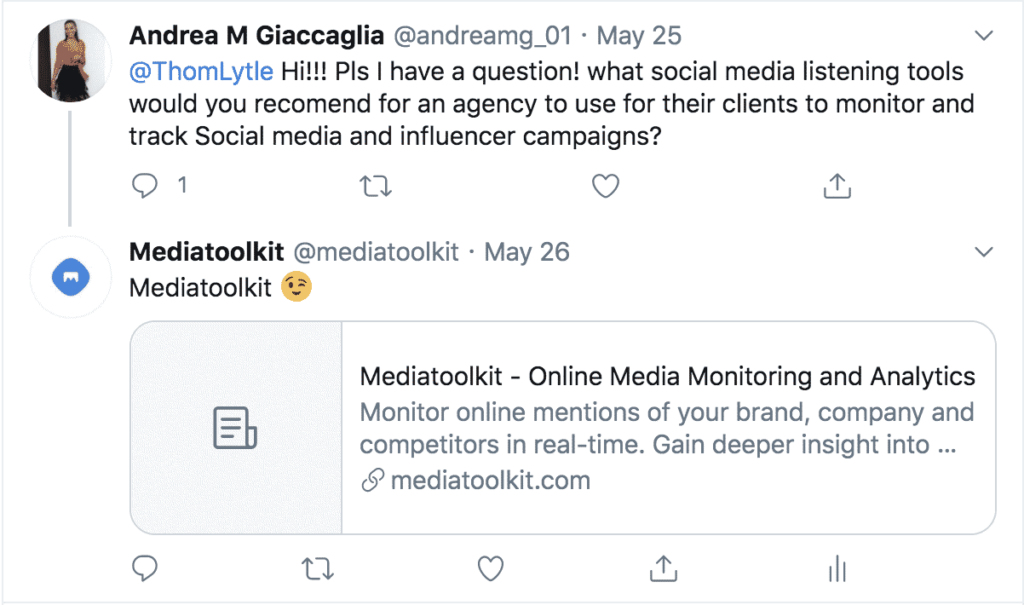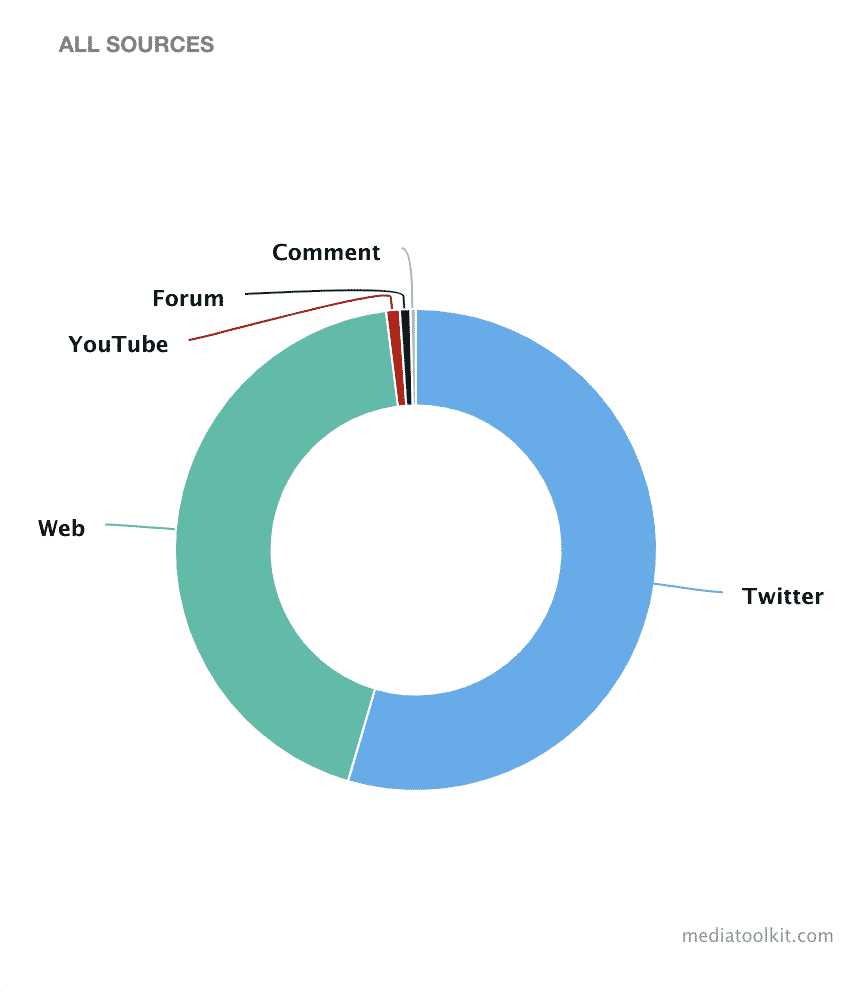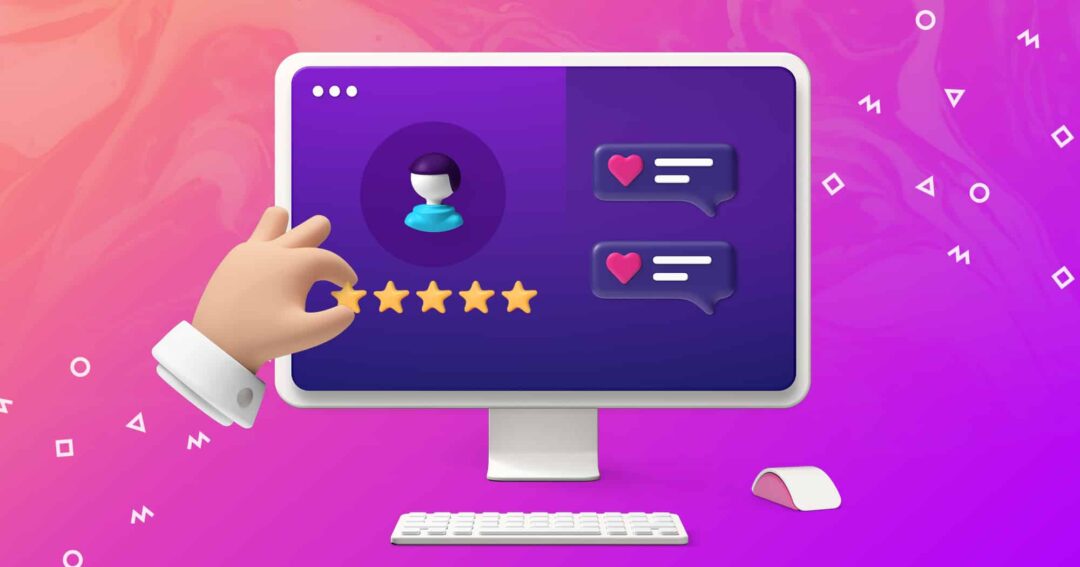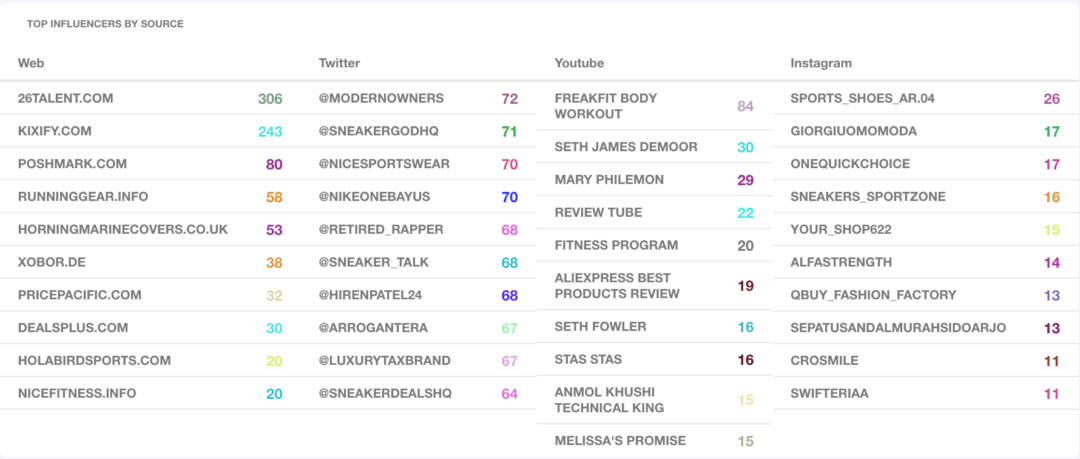It’s no secret that consumers love to discuss brands, products, and services online. But, what you may not know is that 96% of those conversations happen outside official brand channels and without tagging the brands directly.
As a result, the majority of brands aren’t even aware of these online conversations mentioning them, and even more importantly, of the adverse effect they have on brand image, consumer trust, and lead generation efforts.
In this post, we’ll explain the importance of managing your brand’s online reputation and how building and maintaining a positive brand image can make your brand become a lead magnet. But first, let’s get into detail on what is online reputation management.
What is online reputation management
As defined by Techopedia, online reputation management is the practice of crafting strategies that shape or influence the public perception of an organization, individual, or other entity on the Internet that helps drive public opinion about a business and its products and services.
Just like traditional reputation management, it’s all about perception.
But, in the fast-paced digital landscape, perception can change quickly. Consumers love to share their experiences online, both the good and the bad. For online reputation management, that means building a positive digital public image so that anyone interested in purchasing a product or service finds themselves reassured by conversations and articles mentioning your brand.

A negative comment in itself might not seem like much, but if left unchecked, it can cause a whirlwind of issues for your company. Not only does it indicate a bad customer experience, but it also shows a lack of a brand’s willingness to resolve the issue, both of which are not something you want a potential customer to see when researching your brand, products, or services.
A single post such as this one might easily get ahead of you, spread like wildfire, and ruin years of hard work – and it might not even be true in the first place.
But, not to focus on the negative only, numerous great opportunities can arise from online reputation management. They lay in the positive consumer feedback you can use to your advantage, such as:
- Following up on positive comments and thus improving the relationship with consumers,
- Implementing user-generated content,
- Turning the most engaged users into brand ambassadors.
That’s why it is essential to keep an eye out on what people online are talking about your business and any relevant topics that might affect it in any sense.
To manage online reputation with no effort, utilize media monitoring tools like Mediatoolkit.
Now, let’s delve deeper into how beneficial online reputation management for business can be in growing your business.
Benefits of managing your online reputation
Staying in the loop and having all the essential information at your disposal is a substantial benefit, but there is much more value that can be obtained. The data you get through managing online reputation is a true goldmine of insights that can transform your business.
Specifically, I’m referring to:
- Information-based decision making
Having all the relevant information takes the guesswork out of the equation, meaning all your business decisions are data-driven and effective. - Audience insights
Getting a deep understanding of your target audience means you know which channels, content, topics, and influencers they prefer, so you can optimize your strategy accordingly. - Market research
Building upon audience insights, market research conducted via a media monitoring tool enables you to evaluate how receptive your audience might be to a new product, campaign, or location, without the hassle of surveys, questionnaires, or focus groups. - Link building
As you monitor your brand, you will inevitably stumble upon articles mentioning you without linking back to your website or referencing you as a source. Knowing so will enable you to contact them and ask to add a link. - Lead generation
One of the most useful features of media monitoring tools is generating leads and sales by identifying the potential for conversion and engaging with that person. This method is very effective since it’s personalized outreach which responds directly to the needs of your lead.
As the topic of this blog is lead generation, we will focus on the 5 concrete methods for reputation management online you can conduct to generate leads and increase your sales.
5 ways to boost your lead generation efforts through online reputation management
As previously mentioned, online reputation management enables you to have a clear vision of all the conversations relevant to your brand. Through that process, you can also easily identify:
- People seeking recommendations or advice for a product or service like yours
- People interested in your product or service specifically
- Unsatisfied customers that use your competitor’s products and services
- Potential customers beyond social media
- Relevant influencers to attract new customers
All of the aforementioned present numerous opportunities for lead generation, so let’s go through each in detail.
People seeking recommendations or advice for a product or service like yours
Being so bombarded with advertisements and influencer campaigns (which are not often disclosed as such), it’s no surprise that consumers turn to each other to learn more about the true customer experience and product or service quality.

But, what if a brand manager directly responded to a customer’s Twitter query on good running shoes as shown in the example above, for instance? If you have a shoe brand, you just might have a solution that the person doesn’t even know of yet.
By monitoring the general category of your products and services, or more specific queries such as ‘good quality shoes’, ‘best running shoes’, or whatever the category of your shoes is, you’ll have an opportunity to identify people looking for recommendations and engage directly with them.
This can be applied to any product, service, or industry. Just take a look at this example:

Since media monitoring works in real-time, you’ll have a chance to be the first to respond and thus increase the likelihood of a conversion. On the other hand, you’ll also get insight into the channels on which the topic of your interest is discussed the most.

That way, you can also focus your efforts on the online business reputation management channel you know your target customers already utilize for that particular topic, so any outreach won’t seem unnatural or unfit.
People interested in your product or service specifically
Continuing on the topic of people looking for recommendations, some of them might be interested in your product or service specifically. Their search efforts might be similar to the aforementioned examples along with a mention of your brand.
But, that doesn’t mean they’ll tag you or reach you directly when looking for other people’s experiences with your product or service.
Now, imagine the surprise factor once you respond to such a query?
Discovering consumer queries for your brand the moment they appear online means you can be proactive and continuously provide the utmost customer experience just moments after they’ve thought about your brand.
Furthermore, those who mention your brand will expect a response from you.
Research shows that 7 in 10 Twitter users expect to receive a response from brands that they reach out to. Of these, 53% expect it in less than an hour. And if they’re tweeting a complaint or providing negative feedback, that number rises to 72%.

Not only do you solve their problem by reaching out, but you also provide personalized service and develop a strong relationship with the customer in question. Now, it doesn’t mean that the customer will buy your product immediately, but your proactive approach and willingness to help will surely make a great impression.
Based on the customer queries, you will also have a clear understanding of areas that are in high demand or need improvement, so you can better focus your marketing or development efforts.
Unsatisfied customers that use your competitor’s products and services
Likewise, you could track competitor’s products and services and identify those customers who express their dissatisfaction with the brand.
If you know your product or service can solve their problems, once again, you can engage directly with them. The answer might not always lay in promoting only your product or service, but it can also be useful content or learning materials. If the content is gated, as it often is the case with ebooks, for example, you’ll obtain their email and gain a marketing qualified lead.
From there, managers can continue supporting their journey through the sales funnel by utilizing a sales engagement platform like Reply.
While speeding up your sales workflow through automation, it simultaneously enables you to keep that personalized approach you aimed for in the first place. Making a sale seems almost effortless, and it is not an exaggeration. The job never ends at pulling in new leads, but instead requires nurturing further down the sales funnel until a deal is closed. This is why personalization is important from beginning to end. By directly offering people your attention (via your product or useful content), you customize your approach to each person, earning trust by solving their issue.
You’d be surprised how much more effective this tactic is in comparison to serving generic advertisements in front of your potential customers.
Potential customers beyond social media
Now, no one can deny the power of social media – but online reputation management has a wider reach, taking into account online reviews, forums, etc.
The fact that 97% of consumers check ratings and reviews before making a purchase shows you that you should pay attention to what people are saying all around the internet, not just social media.
Review sites generate online word-of-mouth and can offer immediate insight into your product or service. By leaving reviews, people give you their impressions. Were they happy with your product or not, did they appreciate your customer service?
All of these things can have a big impact on your potential customers and, at the same time, your business in the long run. Why would somebody purchase your product if the majority of the reviews are bad?
These insights can help you prevent further criticisms by changing your business practices or fixing recurring issues. Addressing both positive and negative reviews as a part of your personal online reputation management tactic can attract potential customers to your brand, so make sure to vigilantly monitor your online presence beyond social media.
Relevant influencers to attract new customers
While monitoring your own brand, competitors, or simply niche queries relevant to your brand, you can also discover macro- and micro-influencers.
Finding the right influencers can be challenging. Most often, an influencer with the biggest following won’t be the best fit. It’s not the number of followers you look to, but rather the relevance their content has to your product or service.
This is why tracking your brand name, complimentary products or industry-related topics boasts the best results.
Through media monitoring, you can discover the most influential people, sites or accounts for any topic you track. Media monitoring tools offer data like the top influencers by the number of topic mentions, source, reach and sentiment.
The ways you can approach finding influencers via media monitoring are vast. So, if you notice that most of your mentions originate from Twitter, you can see who has the most influence on your topic on that channel and go from there.





![Upselling and Cross-selling: The Go-To Guide [+7-Step Framework Inside] Upselling and Cross-selling: The Go-To Guide [+7-Step Framework Inside]](https://reply.io/wp-content/uploads/upsale-1024x538.jpg)

